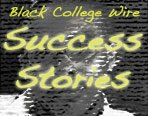| Class Conflict Exists Among Black Americans |  |
 |
 |
| By W. Hassan Marsh -- Black College Wire | |
|
I shuffled in the cold over bricks arranged to evoke Morehouse College’s emblem, a sun peeking through clouds. My mind preoccupied itself by contemplating my academic performance, potential future employment, and the other means that my college education was going to insure my entrée into the middle class. 
Personal photo
W. Hassan Marsh
But he persisted. I sensed something soft and honest in his voice and decided that since I, unlike many of the more privileged students, could empathize with where he was coming from. I should at least listen to him. He said his name was Trey. “Thank you for talking to me,” he said after I stopped. “Everyone else around here runs away from me,” Trey said that he had just run away from his foster home and came back to the impoverished neighborhood around Morehouse to find his mother. Upon finding her, the 15-year-old walked to the top of hill where the campus overlooks one of the poorest areas of Atlanta to ask for money. For him, Morehouse was a beacon, beaming with college kids who, although looked liked him, had more disposable income then he has survive. On Election Day two weeks earlier, a friend and I took the side streets instead of the main thoroughfare to get back to campus. As he put it, we needed to “get a dose of reality” on that day abuzz with talk of historical change. The scene was a familiar one. Burnt down houses. Liquor stores. Crack addicts. Prostitutes. But even in the community known as "The Bluff” where rapper Young Jeezy is said to have made his early fortunes in the traps (drug houses), the city’s underclassed and typically apathetic lumpenproletariat filled the streets with Obama signs, singing and dancing like it was the first Juneteenth. Before that, I had often thought about what Obama meant to the world, and me but for the first time I thought specifically on what his candidacy and potential presidency would mean for the very least of these. I started to think of the same question as Trey told me his story only yards away from the symbolic chapel bell alluded to in Alumnus’ Spike Lee’s School Daze that students rang for nearly three hours after Obama’s win. Now, as Trey looked to me for help, no bell rang and no one mentioned Obama in response to the reality of immediate needs. The first thing Trey did was to assure me that he was not a thief and that he had genuine intentions. As he told me his story and as I asked him questions, he started to come to tears. What disturbed me about this interaction was that he spoke to me as a person of a lower class soliciting some one of a higher class, as if I had power over his immediate future. I told him “hey man, I’m from the south side of Atlanta too; if it wasn’t for my scholarship, I wouldn’t be here.” He looked at me incredulously with the same disdain he talked about my classmates who drove around in Range Rovers. I’ve never been comfortable with my privilege. However, encounters like these remind me that I have to acknowledge it. Privilege or no privilege, my wallet was empty. And after hearing the news, Trey kept moving. Just a few days earlier, Michael Eric Dyson, Stic.Man of Dead Prez, and few others participated in a panel discussion at Morehouse on education and the black male. Stic.Man highlighted the point that Obama is dually a gift and a curse to black people because although Obama’s presidency shows that a black man can, it ignores that Obama is one type of black man from one class. According to him, Obama’s political change was cool, but he preferred revolutionary change. Thinking back on Trey and our face-off on the campus named after the white man that gave Du Bois the concept of the Talented Tenth, I have to ask my self what type of change would Trey like to see. And what side am I on in the waging class warfare. W. Hassan Marsh is a student at Morehouse College and a former Black College Wire summer intern. Articles in the Voices section represent the opinions of the individual writers and do not reflect the views of Black College Wire. |
|
| Posted Jan. 28, 2009 |
| < Prev | Next > |
|---|



